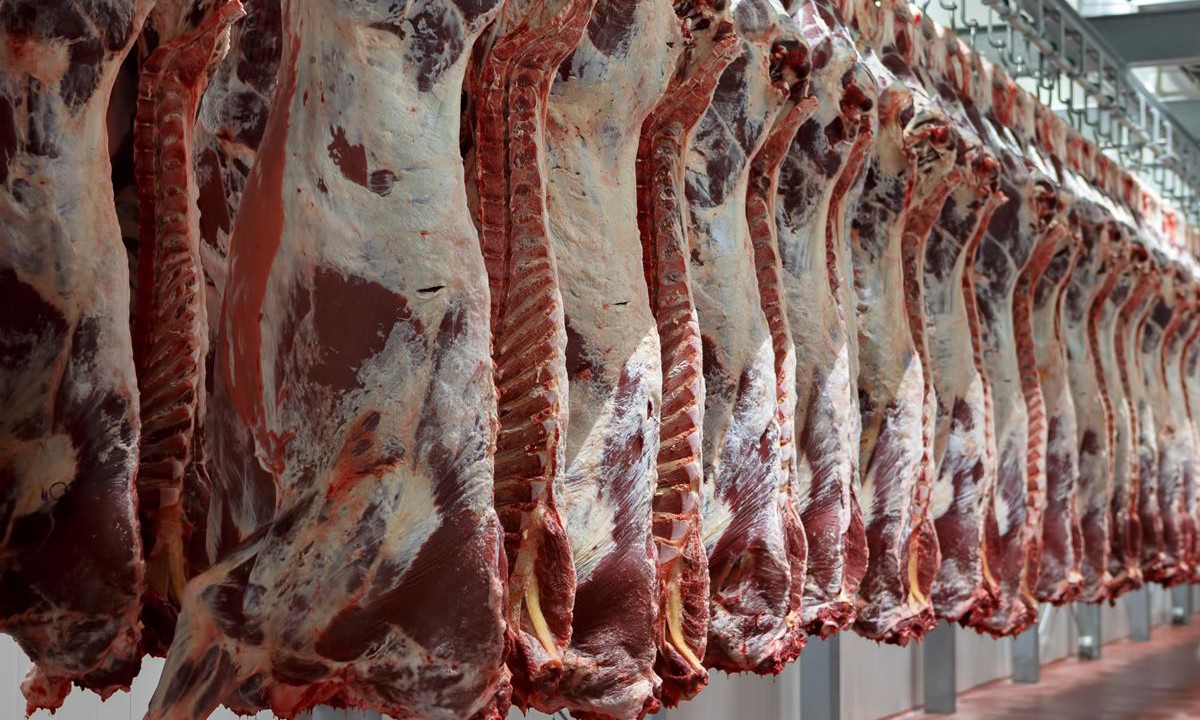A support fund is urgently needed for struggling small abattoirs in the UK to install CCTV in order to comply with new legislation designed to protect animal welfare.
The Sustainable Food Trust said it recognises the potential benefits of CCTV but is calling on animal rights and animal welfare groups, which have complained that some abattoirs have not yet installed it, to recognise the issues currently faced by smaller abattoirs.
Richard Young, Sustainable Food Trust policy director, said: “Animal welfare groups are not acting in the best interests of animal welfare in piling yet more pressure on the few remaining small abattoirs that have still to install CCTV.
“I fully understand their concern about the factory scale of the slaughtering industry and the abuses that have occurred, and it is clear that the Government is very sensitive to their demands. But they are actually helping to drive the last few small abattoirs out of business.
These are small family-run businesses where animals are treated as individuals and do not have to endure long journeys.
The UK’s smallest abattoirs are currently facing an unprecedented crisis. Many of them are losing money and find it hard to see how this will change.
This means that a significant proportion of those that have not yet installed CCTV need Government assistance to prevent them from being forced to close.
There are now only 56 small red meat abattoirs left in the UK, with a third having closed between 2007 and 2017, and a further seven closing this year.
Small abattoirs slaughter very small numbers of animals but provide an essential service to producers of high welfare local meat, for which public demand is growing.
Pressure
The pressure is due in part to a collapse in the value of hides and skins, with small abattoirs currently being paid as little as £4.50 for cattle hides and 10p for sheepskins, compared with £35 and £6.50 respectively a few years ago.
At the same time, waste disposal costs for most small abattoirs have increased significantly due to consolidation in the rendering industry and higher minimum charges for small quantities.
Small abattoirs also face a range of other costs which make it difficult for them to compete economically with large slaughterhouses.
This puts small abattoirs at a major disadvantage compared with the very large slaughterhouses which process animals for multiple retailers.
The cost of installing CCTV in small abattoirs is very much higher per animal than in large abattoirs which makes the investment in installing the cameras a bigger challenge.
Large slaughterhouses have also received millions of pounds of public money in grants and also benefit from economies of scale, but the animals they slaughter generally travel many hundreds of miles at the cost of their welfare and the environment.
As a result, the Sustainable Food Trust is calling for small abattoirs to be recognised as a ‘public good’ and for grants to be made available to help with the cost of installing CCTV and other improvements.
Such support is currently only available to the 15 smallest abattoirs in Wales, with the Welsh Government having put aside £1.1 million specifically for this purpose.
Richard Young added: “We’d really welcome it if animal rights and welfare organisations would meet with us and discuss these issues openly.
“They have done some good in shining a light on the abuses that have occurred, but if they really care about animal welfare they will come to understand that the smallest abattoirs desperately need public support at the moment, not further criticism just for cheap headlines.”

